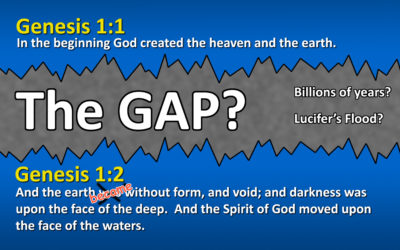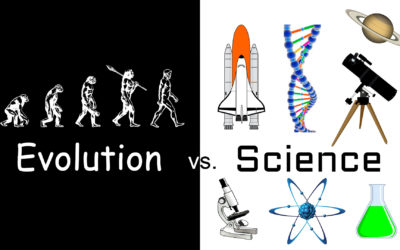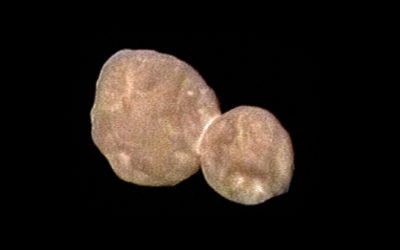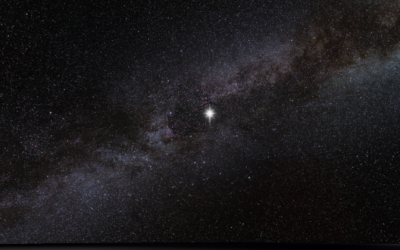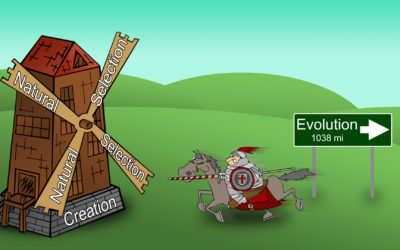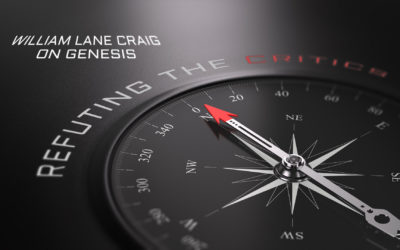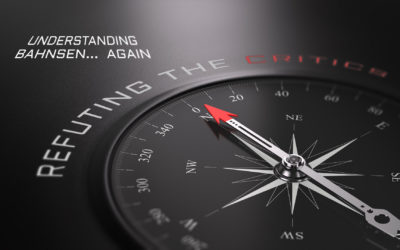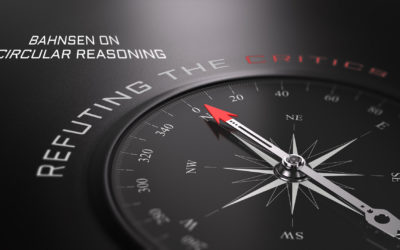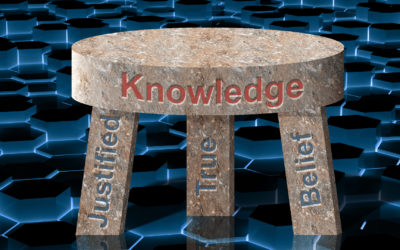ARTICLE ARCHIVES

A Big Bang – Part 1
How did the universe begin? In almost all public schools and universities, the most commonly promoted idea of universal origins is the big bang. Is the big bang really a reasonable theory about how the universe began? Can it be reconciled with Scripture? Is it based on good science?
More on the Bible’s Historicity
Our feedback this week is from Colin who had previously claimed that the Bible was not historically reliable. He continues his case here, along with my responses in purple. He made a lot of assertions and copied various internet links. But did he present any actual evidence for his claims?
Pluto and the Young Solar System
The outer solar system continues to confirm the biblical timescale. When the New Horizons spacecraft flew past the Pluto system in July 2015, its findings challenged secular expectations…. A recent study examining the sparse cratering on these worlds provides even additional evidence of their biblical age of a few thousand years.
The Gap Theory
The gap theory was one of the earlier attempts to reconcile the secular belief in deep time (millions of years) with the biblical timescale of around 6000 years. The gap theory does not stand up to scrutiny and has been thoroughly refuted.
Is Genesis Historic and Reliable?
Our feedback this week comes from Colin who believes that the Bible is “historized” fiction and not reliable in terms of science. Here are his comments in purple text along with my response.
Evolution vs. Science
Evolution is fundamentally incompatible with the scientific method. That is, if neo-Darwinian evolution is true, then there would be no rational basis for trusting in scientific procedures. Conversely, if science is a reliable tool for understanding how the universe works, then particles-to-people evolution cannot be true.
Ultima Thule
A few days ago, the New Horizon’s spacecraft flew past the small trans-Neptunian object, 2014 MU69. At a distance of over 4 billion miles from earth, MU69 is the most distant object ever visited by a manmade instrument.
The Christmas Star
What was the star that led the wise men to Christ? Was it a conjunction of planets, a comet, a supernova, a moon, an angel, or something else? Opinions abound, but many of them do not fit the details of the biblical text. What does the Bible have to say about this star?
Darwin’s Trap
When Charles Darwin wrote “On the Origin of Species” in 1859, he employed an ingenious trick to persuade people of evolution. He linked evolution to natural selection, implying that natural selection was the mechanism of evolution. This was a clever trap because when something false (evolution) is linked with something true (natural selection), people are often fooled.
William Lane Craig on Genesis
Our critic this week is Dr. William Lane Craig, a philosophy professor and Christian apologist. Although Craig defends Scripture in some areas, he adamantly denies literal (6-day) creation in favor of the big bang and secular timescale.
Understanding Bahnsen… Again
Our feedback this week once again comes from Peter who is still convinced that I have misrepresented the presuppositional method. Peter claims that (1) all forms of circular reasoning are fallacious and (2) that the presuppositional method as advanced by Bahnsen and Van Til does not involve any circular reasoning.
Bahnsen on Circular Reasoning
Our critic this week, Peter, is not a critic of Christianity. Rather, he has criticized my previous article in which I show the difference between vicious (arbitrary) circular reasoning and virtuous (rationally necessary, or “spiral”) circular reasoning. Peter has an unargued philosophical bias that all circular reasoning is wrong / fallacious, and that the presuppositional method used by Bahnsen and Van Til does not employ circular reasoning.
The Ultimate Standard
We previously covered the Münchhausen trilemma: an argument that knowledge is impossible because it can never be ultimately justified. Any (true) belief must be based on a good reason in order to be considered knowledge. But the reason is only good if it also is based on a good reason, which is based on a good reason and so on.
The Chain of Reasoning
Knowledge begins with God (Proverbs 1:7). But what is the mechanism by which we reason to have knowledge of other things? How does our knowledge that the “sun is bright” depend on revelation from God? By what chain of reasoning are we able to know anything about anything? How do we prove our most basic, foundational belief?
Biblical Epistemology
“The fear of the Lord is the beginning of knowledge, but fools despise wisdom and instruction” (Proverbs 1:7). The fact that knowledge begins with God and that everyone has some degree of knowledge can be used in apologetics to expose the unbeliever’s suppressed knowledge of God. The argument is powerful and irrefutable. But what exactly is knowledge?




